Iran Expresses Concern Over Islamic State Group In Afghanistan
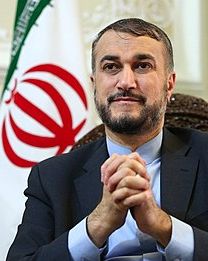
Iran’s foreign minister, Hossein Amir-Abdollahian on Saturday expressed concern over terror attacks and the growth of the Islamic State group in Afghanistan.

Iran’s foreign minister, Hossein Amir-Abdollahian on Saturday expressed concern over terror attacks and the growth of the Islamic State group in Afghanistan.
In a meeting with Peter Launsky, Secretary-General at the Austrian Federal Ministry for European and International Affairs, Amir-Abdollahian condemned “recent terrorist operations” in Afghanistan and characterized “the growth of the Islamic State and Takfiri groups” in that country as “dangerous”.
Launsky also condemned the attacks and said that Iran and Austria share concerns over the Islamic State group.
ISNA news website in Tehran reported that Launsky visited Iran to hold the fifth round of bilateral political discussions with Amir-Abdollahian, who praised “long-standing” relations with Austria, thanked for Vienna’s donation of Covid vaccines and called for more cooperation against the pandemic.
Launsky also expressed hope that with the participation of all sides the 2015 Iran nuclear deal (JCPOA) can be revived.
Vienna was the venue of multi-lateral talks from April to June aimed at restoring the JCPOA. Iran stopped participating in the talks that have been suspended. Western countries have been urging Tehran to return to negotiations.
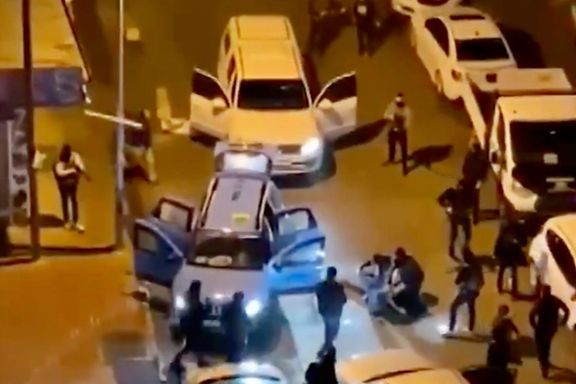
Turkish media have revealed the identity of an Iranian military officer who was the target of a foiled abduction by Tehran’s security services in September.
Türkiye, a right-wing conservative newspaper in Turkey reported on Saturday that the individual is a military pilot named Mehrdad Abdarbashi. Turkish intelligence, which revealed that a plot was foiled in September and several people detained, had named the target with his initials, M.A.
Turkey's official news agency Anadolu (Anatolia) reportedthat the country's National Intelligence Organization (MIT) and police had arrested an Iranian and seven Turks in Van, a city in south-east Turkey on September 24.
Abdarbashi told Türkiye that after using excuses not to be sent for a mission to Syria he decided to flee Iran. He told the newspaper that a female agent of Iranian intelligence invited him to his house, and he alerted Turkish authorities. After she drugged him and others were preparing to abduct him, Turkish agents raided the house.
Iranian intelligence has killed or abducted and rendered hundreds of dissidents and opposition activists abroad in the past 40 years.
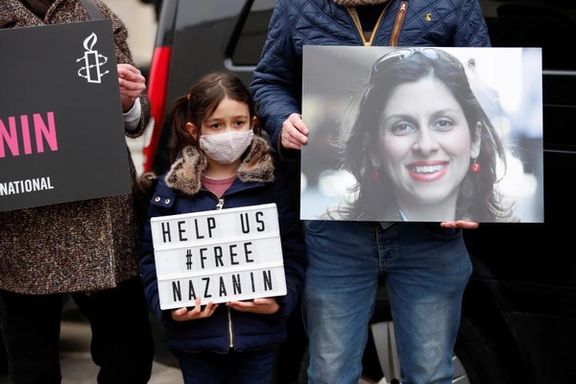
An appeal court in Iran has upheld the verdict and one-year prison sentence of British-Iranian citizen Nazanin Zaghari-Ratcliffe, held on ambiguous charges.
The project manager for the Thomson-Reuters Foundation has also been barred from leaving Iran for a year, Hojjat Kermani, Zaghari-Ratcliffe's attorney, told Emtedad news Saturday.
In March Zaghari-Ratcliffe completed a previous five-year sentence, with eight months in solitary confinement, but a second trial convicted her of further charges, which related to
a protest at the Iranian embassy in London in 2009, which was judged punishable under the Iranian Penal Code.
“It seems that every time we dare to hope that Nazanin might soon be free, there is another dreadful setback that puts freedom out of sight," Zaghari-Ratcliffe's member of parliament in Britain Tulip Siddiq tweeted Saturday. "She could now be returned to prison at any time.”
Zaghari-Ratcliffe was arrested in April 2016 while visiting her family in Iran and convicted on espionage charges without due process of law.
Security charges in Iran are tried in closed-door courts, usually with limited representation. Her husband Richard Ratcliffe has repeatedly alleged that that Iran has taken his wife as a bargaining chip to encourage the British government to repay £400 million ($550 million) owed to Iran for Chieftain tanks that Tehran paid for in the 1970s but never received.
In September 2020, United Kingdom Defence Secretary Ben Wallace acknowledged the debt in a letter to lawyers representing Zaghari-Ratcliffe and relatives of ,dual nationals held in Iran. Wallace said he was seeking to make arrangements for repaying it.
“Iran conducts its diplomatic business through hostage-taking, in part because it is cost-free,” Richard Ratcliffe was quoted by the Guardian newspaper as saying on September 19. “British citizens will not be protected from hostage-taking by words and soundbites, but by actions that cause the perpetrators to reassess their calculations and consider the personal costs – for their role in what is a serial organized crime,”
Zaghari-Ratcliffe has been under house arrest at her parents' house in Tehran since March 2020 when she was given furlough from prison due to the Covid pandemic. Two forensic specialists produced a report in February 2021 after examining Zaghari-Ratcliffe by video-link that she suffered from post-traumatic stress disorder, depression, and obsessive-compulsive disorder due to her treatment in prison, house arrest, uncertainty, and separation from her family.
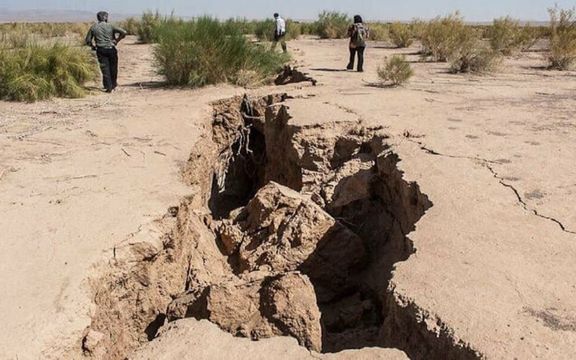
An expert in Iran has warned that the country has less than ten years to deal with dangerous land subsidence because of over-extraction of ground water.
Reports and images last week showed that international airport and historic buildings in Esfahan are sustaining damage from sinking land, as a result of over-reliance on ground water for agriculture amid recurring droughts.
Ali Baytollahi, an expert on roads and buildings, told Tejarat News that most plains in Iran are sinking and the problem is worse in Esfahan.
Land subsidence is not limited to Esfahan and its surrounding plain. In many other areas in Iran cracks and huge hollows that resemble meteor craters have appeared in the ground in recent years. Ali Saberi, a geologist told local media recently that one million hectares of land in the country is affected by subsidence and the main cause is unlimited extraction of ground water.
Alireza Shahidi, head of Iran’s Geological Organization said earlier this year that land subsidence is a “disaster” and a “silent earthquake” that can lead to political and security crises.
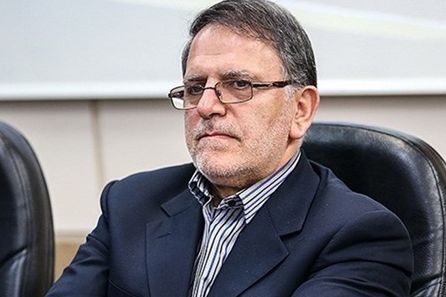
A former governor of the Central Bank of Iran (CBI) has been sentenced to 10 years in prison, along with several others, the Judiciary announced on Saturday.
Valiollah Seif headed the CBI from 2013 to 2018, during the first six years of Hassan Rouhani’s presidency but was accused of improper foreign currency transactions together with one his deputies, Ahmad Araghchi, nephew of Iran’s former chief nuclear negotiator, Abbas Araghchi.
The spokesman of the notorious Judiciary, which combines both prosecutorial and court functions, said that Ahmad Araghchi was sentenced to 8 years. The charges were improperly selling160 million US dollars and 20 million euros on the open market.
Another person charged in the case is Salar Aghakhani, a foreign currency dealer for Ansar Bank of the Revolutionary Guard Cooperatives Foundation.
Ahmad Araghchi in his defense in 2018 had said that the sale of hard currencies took place for boosting the value of the Iranian currency, rial, in coordination with the Intelligence Ministry and based on a request by the Supreme National Security Council and orders by president Rouhani.
Iran’s central bank routinely intervenes in the volatile foreign currency market, usually to defend the ever falling value of the rial.
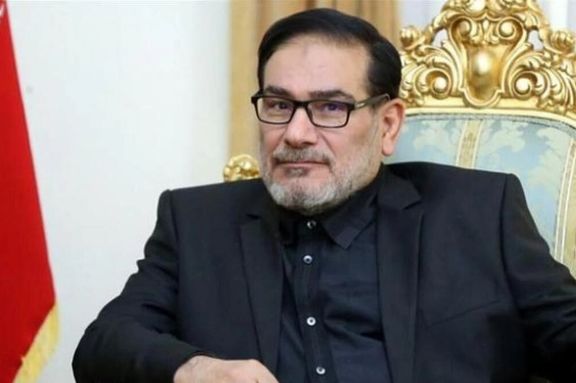
Ali Shamkhani, Iran’s top security official, warned Azerbaijan to avoid "costly traps set by devils" after President Ilham Aliyev accused Iran and Armenia of colluding in drug trafficking.
“Accusation against a country that the world recognizes as a hero in the fight against drugs has no effect other than invalidating the speaker's words," Shamkhani tweeted Friday.
Mahmoud Abbaszadeh-Meshkini, spokesman for the parliamentary committee on national security and foreign policy, told Tasnim news agency Saturday that said Iran's efforts against drug trafficking were "unparalleled in the world” and that without Iranian efforts, in which thousands of security officers had died, Europe and the Caucasus would have been flooded with drugs. He said that Azerbaijan was acting again good neighborliness, with ill-wishers trying to harm relations between the two Muslim countries.
Addressing Friday a videoconference of the Commonwealth of Independent States (CIS) heads of state, Aliyev alleged that Iran and Armenia had used Nagorno-Karabakh, which was under Armenian control from 1994 until last year’s Azerbaijan-Armenia 44-day war, to transport drugs to Europe. Armenia and Azerbaijan remain technically at war after an uncertain ceasefire.
Aliyev said Azerbaijan had shut down this drug-trafficking route, through Jabrayil region bordering Iran, after taking over the disputed territory of Nagorno-Karabakh last year and "restoring the [Azeri] 130-km border with Iran.” He also claimed that the volume of heroin his country had seized in other areas of the Azerbaijani-Iranian border had doubled since Baku took over Nagorno-Karabakh.
Prime Minister Nikol Pashinyan told the CIS that law enforcement bodies of Armenia and Iran were in close cooperation against drug trafficking. "I can also present numbers which demonstrate that the volume of seized drugs and the number of arrests in illegal drug trafficking cases have grown by three, four and even more times,” he said.
Tensions between Iran and Azerbaijan in recent weeks have seen Azerbaijan arrest Iranian truck drivers travelling to Armenia in a segment of territory under its control, and military drills on both sides of the border.Tehran is wary of potential geopolitical changes, the reported presence of Sunni fighters brought by Turkey from Syria to fight alongside Azerbaijani forces, and Baku allegedly opening its airspace to Israeli military flights.Baku freed the truck drivers Wednesday.
The United Nations Office on Drugs and Crime describes the trafficking of illicit Afghan opiates as “one of the world's greatest transnational drug and crime threats.”